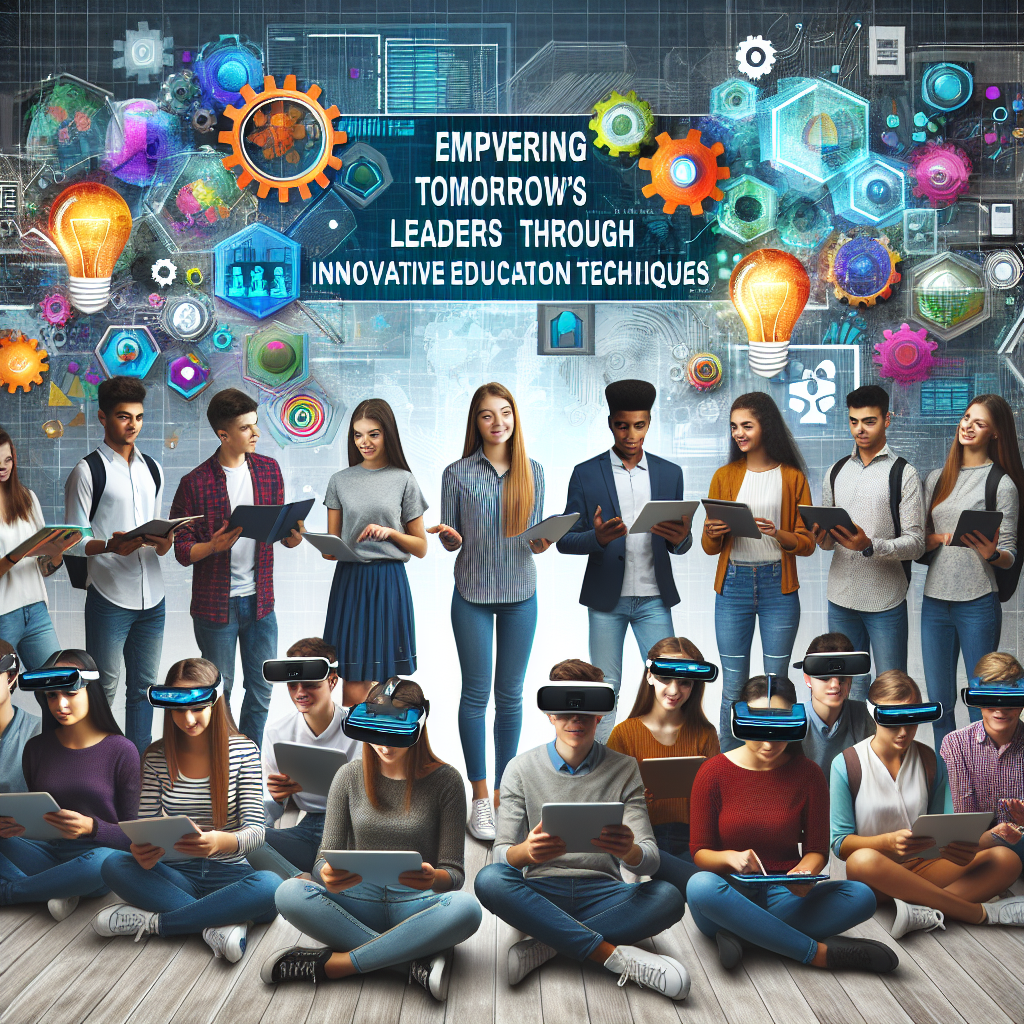In order to prepare the leaders of tomorrow, it is essential to provide them with the necessary tools and skills to navigate an ever-changing world. Traditional education methods may not always be sufficient in equipping students with the knowledge and experiences they need to succeed in an increasingly complex and fast-paced environment. That is why it is crucial to embrace innovative education techniques that empower students to think critically, problem-solve effectively, and adapt to new challenges.
One such innovative approach to education is project-based learning. This hands-on, experiential learning method allows students to actively engage with material, collaborate with their peers, and apply their knowledge in real-world scenarios. By working on projects that require creativity, critical thinking, and problem-solving skills, students are able to develop a deeper understanding of concepts and cultivate the skills necessary for success in a rapidly evolving workforce.
Another effective approach is personalized learning, which tailors instruction to meet the unique needs and interests of each individual student. By allowing students to learn at their own pace and in ways that resonate with their learning styles, personalized learning enables students to take ownership of their education and pursue subjects that they are passionate about. This self-directed approach not only fosters a love of learning but also empowers students to explore their interests and strengths, ultimately preparing them to take on leadership roles in the future.
Incorporating technology into the classroom is another effective way to empower tomorrow’s leaders. From virtual reality simulations to online collaboration tools, technology can provide students with access to a wealth of resources and opportunities for learning. By integrating tech-savvy tools into their education, students can develop the digital literacy skills needed to thrive in a technology-driven world and gain valuable experience with tools that are increasingly used in the workplace.
Finally, fostering a culture of innovation and entrepreneurship in the classroom can help students develop the mindset and skills needed to drive change and lead in their respective fields. By encouraging students to think creatively, take risks, and pursue their ideas, educators can instill an entrepreneurial spirit that empowers students to be proactive, adaptable, and resourceful in the face of challenges.
Innovative education techniques such as project-based learning, personalized learning, technology integration, and entrepreneurship education are essential in empowering tomorrow’s leaders to navigate a complex and rapidly evolving world. By equipping students with the skills and mindset needed to succeed, educators can help cultivate a new generation of leaders who are prepared to tackle the challenges of the future and drive positive change in their communities and beyond.

